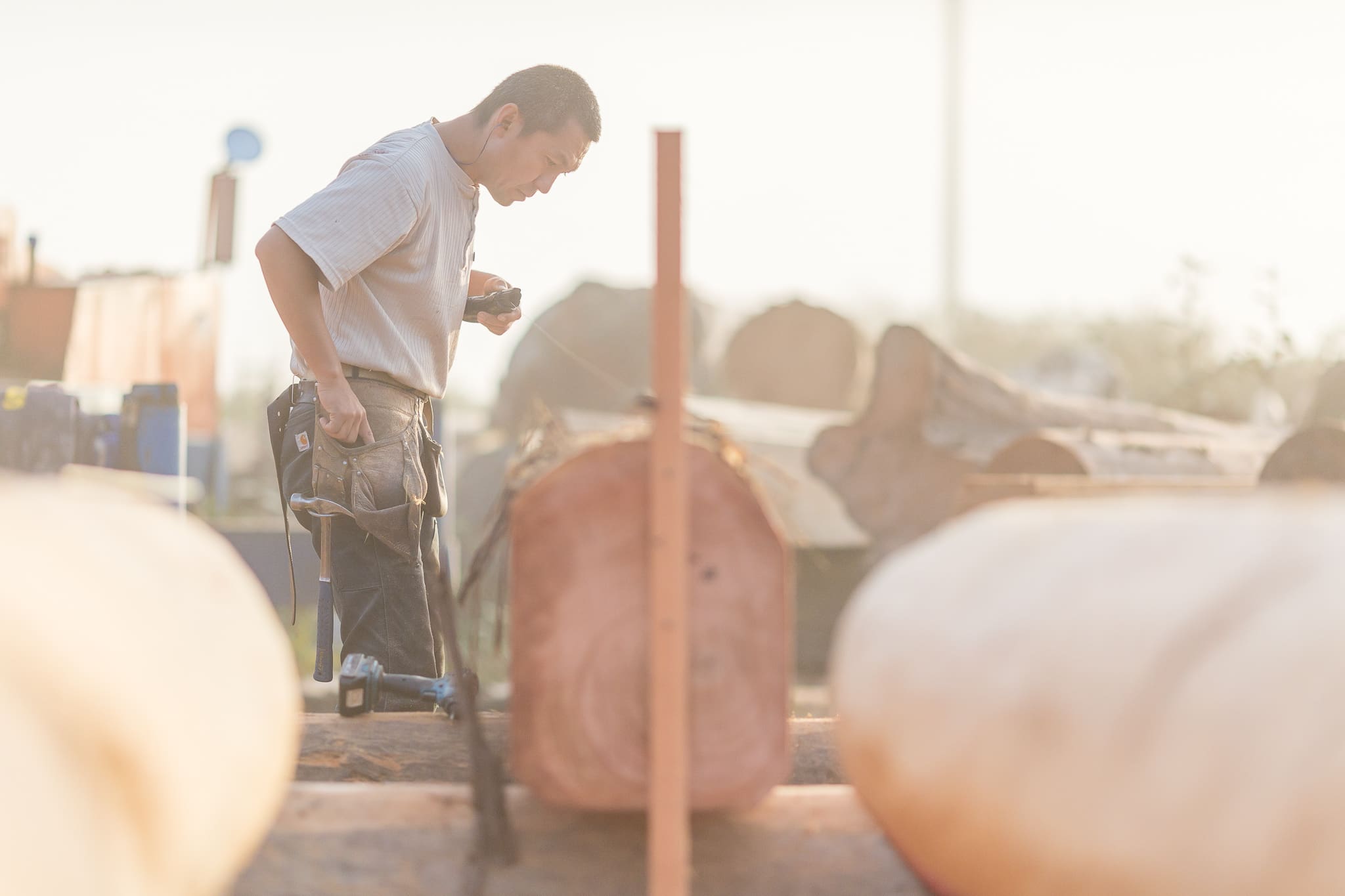If you are considering buying a log home or a home that has a large amount of timber work done to it, it is important to ensure you are hiring the right type of home inspector. We recommend that you hire a home inspector that is familiar with log homes and timber structures as there are a number of things that are unique to these types of buildings.Before you agree to have a home inspector come over to your home, here are a few key questions you may want to have them answer beforehand.
Are you specifically a log home inspector?
As mentioned above, there are numerous differences between a custom log home and a traditional log home. For example, log homes have to “settle” for the first few years after being built. A home inspector that is not familiar with log homes may not be aware of this and may not know what to look for to ensure that your home won’t run into problems over the next few years.
Do you do repairs too?
This is an important question to ask because you don’t want your inspector to have a conflict of interest. On occasion, you may notice inspectors pushing repairing services on you. It happens when they have ties with contractors, or motivation towards earning commission. Try to hire a log home inspector who only does the inspections.
Do you have insurance?
Again, asking this is vital but many people do not realize that. An inspector who does not have the right insurance in place (especially the ones who have workers) can get you into trouble. A slip and fall accident can incite them to sue you if they don’t have the right insurance in place.
Is there a sample report I can look at?
A sample report will give you an idea what the detailed report after an inspection will look like. It has to be simple and easy for you to understand- you don’t want to look at the report and make nothing out of it. Your report should be able to help you identify the problems that need to be addressed immediately and the concerns to be aware of over the next few years.
Can I be present as you inspect?
In many cases, especially if you are preparing to purchase a new log home, it is nice to go along with the inspector to get a second look at the home. It also is an opportunity for you to ask some more in-depth questions as you go through the home. If your inspector indicates that they don’t want you to join them, this may be a red flag and you may want to ask why not. An honest inspector should not have any problems with you standing to one side as they do the inspection, or you meeting them at the property afterwards to do a debrief and go over any concerns. In fact, being with the inspector can give you an idea of how to perform a general inspection of your house in the future.
Do you offer any guarantees?
You can’t expect your inspector to give you an exact day and time of when the logs will start to crack and doors will show signs of misalignment, but you still need some satisfying words from them for your peace of mind. If your log home inspector is ready to stand behind their claim for a defined period, it is a sign that you have found a good one.
Can I inspect on my own?
When it comes to having a home inspection for the purposes of buying a new home, most often your bank or financial institution will want this done by a professional. We’ve heard a number of people say that they don’t want to pay the $250 – $600 fee that comes with an inspection, but that fee upfront could save you thousands of dollars in the future. Yes, there are a lot of things that you can do on your own to inspect a home, but hiring a professional can help you be aware of things that you might not think of and address concerns before they become too costly.
In the end, a good home inspector is a good investment – not only to ensure that any current or future issues are addressed, but to also bring you piece of mind before you purchase your home. We also recommend to clients that it is a good idea to have your log home inspected every few years to avoid running into surprises the following spring or winter.


